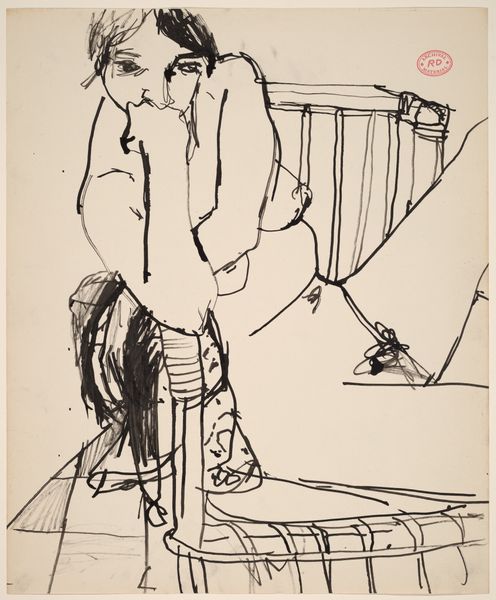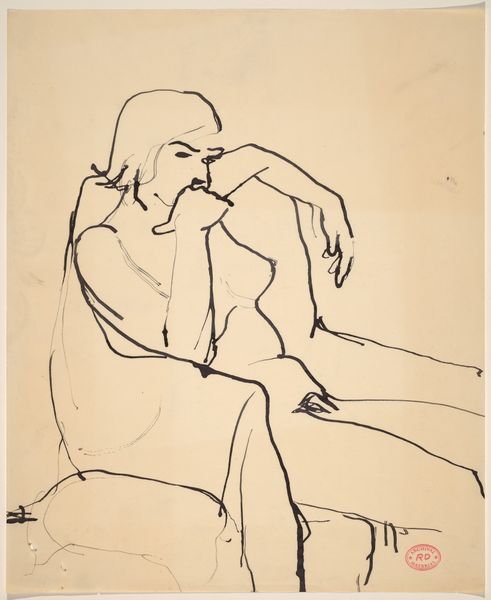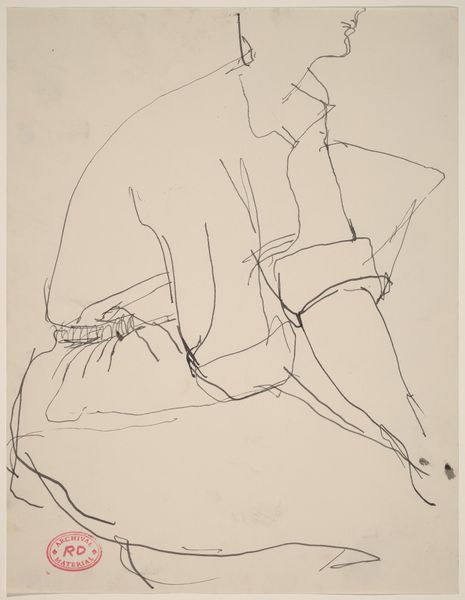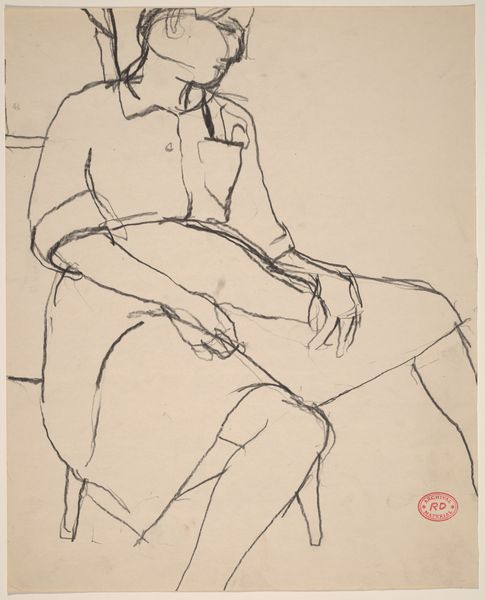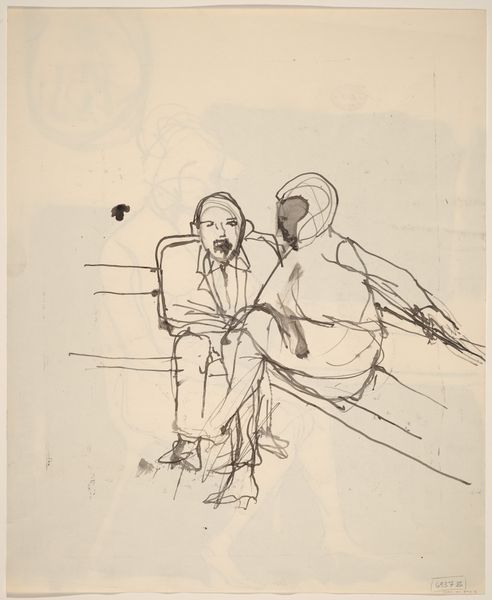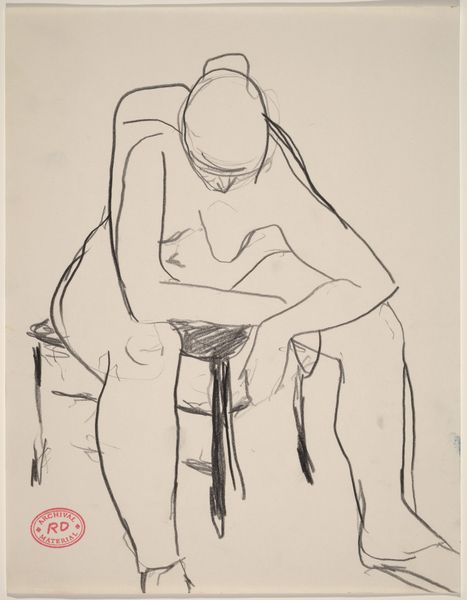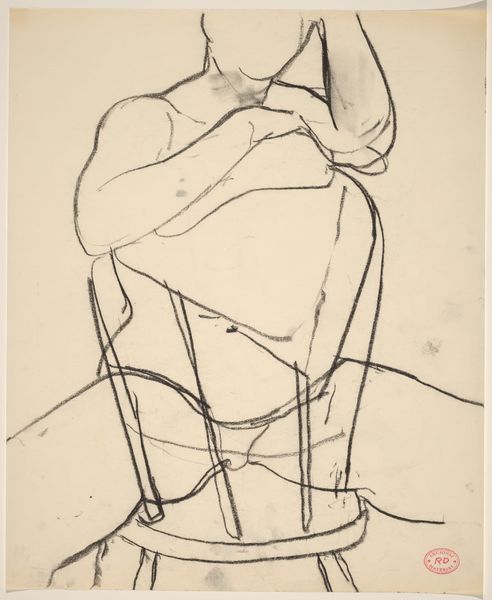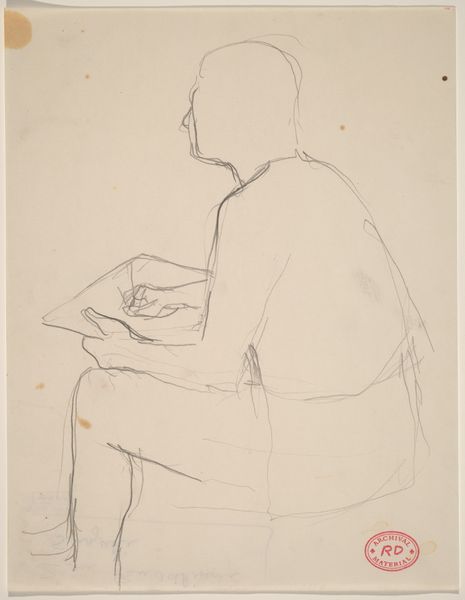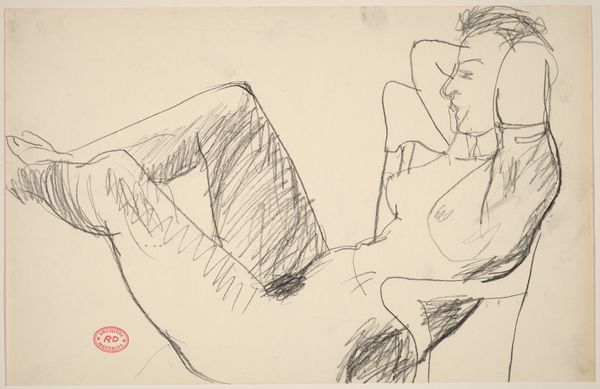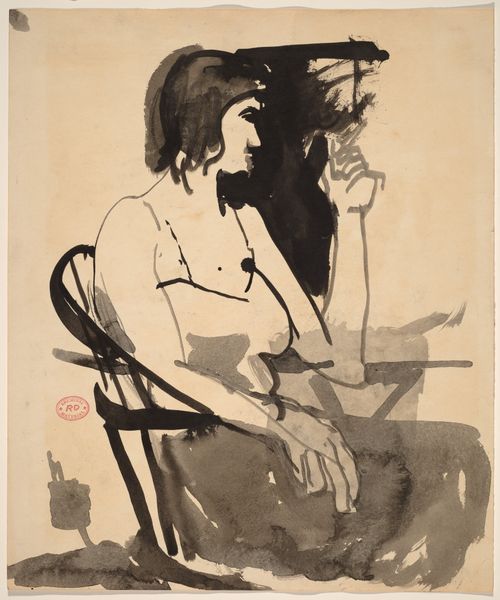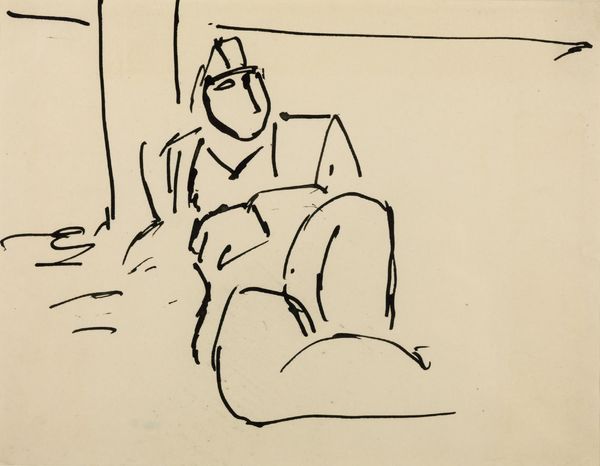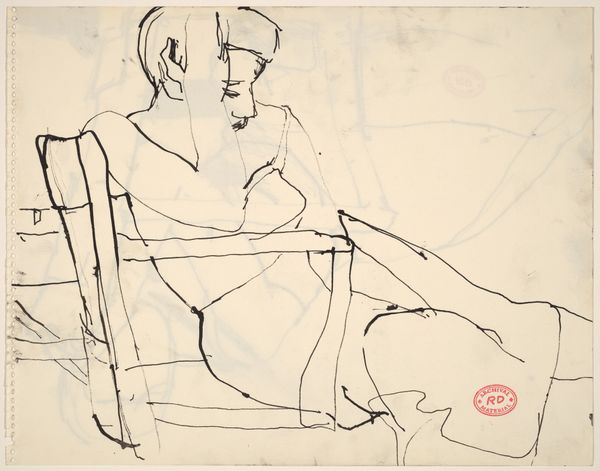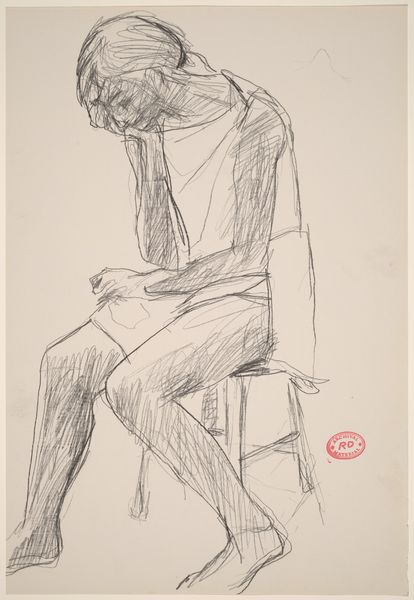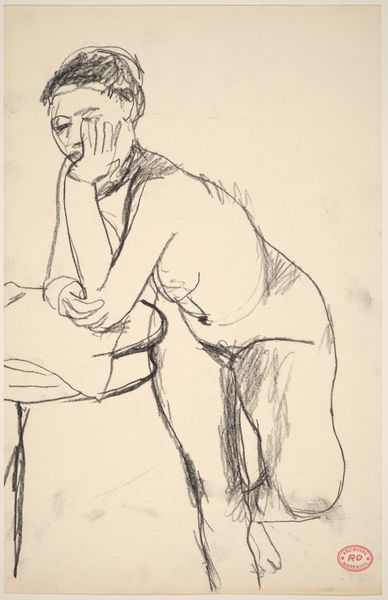![Untitled [woman slumped in a chair] by Richard Diebenkorn](/_next/image?url=https%3A%2F%2Fd2w8kbdekdi1gv.cloudfront.net%2FeyJidWNrZXQiOiAiYXJ0ZXJhLWltYWdlcy1idWNrZXQiLCAia2V5IjogImFydHdvcmtzLzdhNTZiYjEzLTg2NzctNDRhYy05MTQ5LTI1NzlhNDlhYmJlZS83YTU2YmIxMy04Njc3LTQ0YWMtOTE0OS0yNTc5YTQ5YWJiZWVfZnVsbC5qcGciLCAiZWRpdHMiOiB7InJlc2l6ZSI6IHsid2lkdGgiOiAxOTIwLCAiaGVpZ2h0IjogMTkyMCwgImZpdCI6ICJpbnNpZGUifX19&w=3840&q=75)
drawing, paper, ink, pen
#
portrait
#
drawing
#
imaginative character sketch
#
ink drawing
#
pen sketch
#
incomplete sketchy
#
figuration
#
paper
#
personal sketchbook
#
bay-area-figurative-movement
#
ink
#
idea generation sketch
#
ink drawing experimentation
#
pen-ink sketch
#
arch
#
line
#
sketchbook drawing
#
pen
#
sketchbook art
Dimensions: overall: 27.5 x 35.1 cm (10 13/16 x 13 13/16 in.)
Copyright: National Gallery of Art: CC0 1.0
Curator: Richard Diebenkorn’s "Untitled [woman slumped in a chair]", made sometime between 1955 and 1967. The work is ink on paper, a study in line and form. Editor: My immediate sense is one of weary contemplation. The stark, almost frantic linework captures a figure in a state of…perhaps, existential fatigue? The weight of those lines is palpable. Curator: The lines articulate a structured geometry. Note the strategic use of negative space which, coupled with the bold pen strokes, allows Diebenkorn to define both form and emotion. It also seems to serve a vital role to allow viewers a moment for consideration and breath. Editor: Yes, the materiality really speaks to process here. You can imagine Diebenkorn's hand moving quickly, urgently. The rough, almost disposable nature of a sketch emphasizes the fleeting nature of labor and consumption—how quickly we can produce and discard. The subject’s slouched posture speaks to physical or mental exhaustion. Curator: The very incompleteness lends the figure a certain universality. Stripped of detailed features, the woman transcends individuality, becoming a representation of ennui. It is that lack of definition that forces viewers to complete the image, in themselves, which creates a connection, maybe even an uncomfortable truth for some. Editor: There's something powerful in acknowledging the labor inherent even in 'sketches' and preparatory works. The medium, humble ink on paper, further grounds this piece. The artist has found true ingenuity, in what appears at first glance to be quick mark-making it speaks to something more fundamental than high end artistry, something very relatable. Curator: Perhaps Diebenkorn meant to challenge our perception of the female form within domestic confines, making it the work’s lasting impact. Editor: For me, its power comes from its stark honesty about the unseen burdens we carry, burdens represented materially through the very application of ink on paper, the gesture itself carrying a burden of representation and production.
Comments
No comments
Be the first to comment and join the conversation on the ultimate creative platform.
